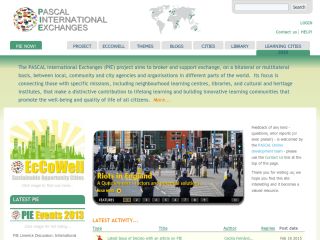Invitation: Jean Monnet SDG Graduate and ECR Workshop 'GLOBAL GOVERNANCE FOR TRANSFORMATION' Wed 27 JAN Online
This workshop aims to highlight and interrogate questions of global governance for transformation. Leading researchers will discuss the capacities and relevance of global governance in an era of intersecting and compounding crises, focusing on questions of climate, values, and democracy, at the global, regional, national and local levels.
Invitation: Jean Monnet SDG Graduate and ECR Workshop
GLOBAL GOVERNANCE FOR TRANSFORMATION
Online
Wednesday 27 January 2021
1-5pm Australia / 10am-2pm Singapore
Recently, questions about the capacity, ability and willingness of global institutions to implement the Agenda have taken on a renewed urgency. The Covid-19 pandemic in particular has shifted conversations about governance structures and democratic renewal. In Australia, for example, it is the states, and not the national government, that have led the response. In the process they have come up against new questions about public health, policing, border enforcement, economic capacity, and renewal.
This workshop aims to highlight and interrogate questions of global governance for transformation. Leading researchers will discuss the capacities and relevance of global governance in an era of intersecting and compounding crises, focusing on questions of climate, values, and democracy, at the global, regional, national and local levels.
Panelists
Professor Ben Cashore is the Li Ka Shing Professor in Public Management in the Lee Kuan Yew School of Public Policy at the National University of Singapore. Ben will discuss his work on the moral foundations of approaches to ‘good’ global environmental governance.
Dr Lay Hwee Yeo is the Director of the EU Centre at Nanyang Technological University in Singapore. Lay Hwee will discuss the role of regional organisations such as the Association of Southeast Asian Nations (ASEAN) and transformative global governance between Asia and Europe.
Professor Bruce Wilson is the Director of the EU Centre of Excellence in the Social and Global Studies Centre at RMIT University. Bruce will discuss governance structures in the EU and their global reach and influence.
Dr Chloe Ward is a Research Fellow at the EU Centre of Excellence in the Social and Global Studies Centre at RMIT University. Chloe will discuss governance of the European Green Deal, and the transformational potential of foundational economy.
Who Should Participate?
This workshop is open to all graduate students and early career researchers (broadly defined).
Those who wish to participate should email their name, a short biography and description of their research interests to Emma Shortis ([email protected]) by Monday 25 January.
For those unable to attend, the presentations will be recorded.
* Please feel free to share this invitation as widely as possible *
European Union Centre of Excellence
Social and Global Studies Centre
RMIT University, Melbourne
Email: [email protected]
Web: rmit.edu.au/eucentre
Let's also connect on twitter @RMIT_EU_CENTRE
The European Union Centre of Excellence at RMIT University is funded through grants from the EU Jean Monnet Programme and RMIT University.
RMIT University acknowledges the people of the Woi wurrung and Boon wurrung language groups of the eastern Kulin Nations on whose unceded lands we conduct the business of the University. RMIT University respectfully acknowledges their Ancestors and Elders, past and present.
 Printer-friendly version
Printer-friendly version- Login to post comments
- Calendar







